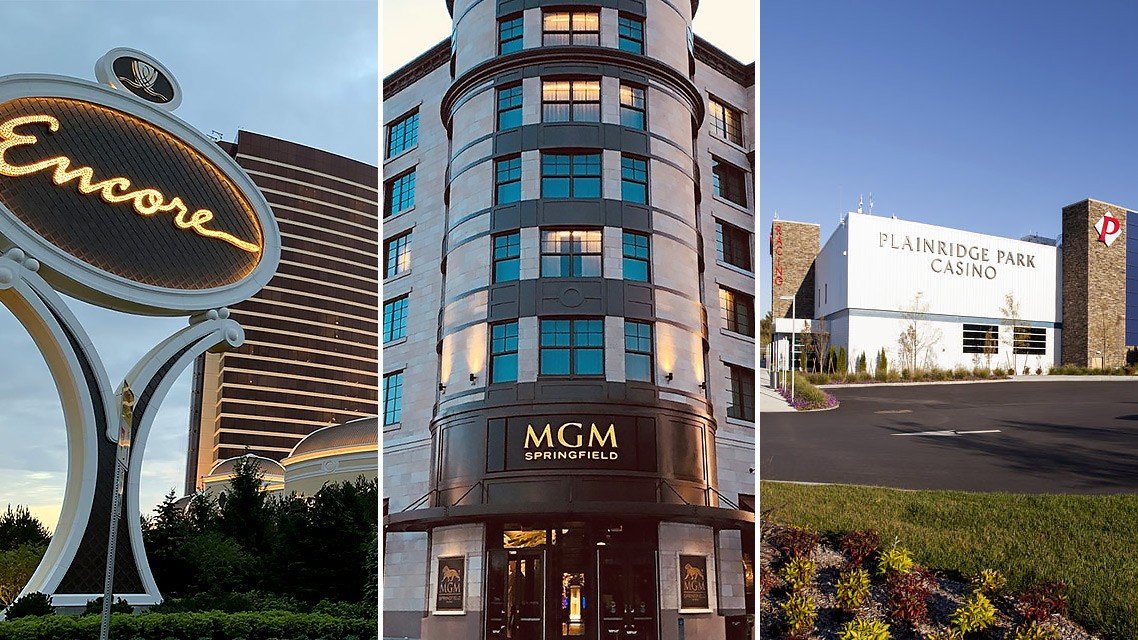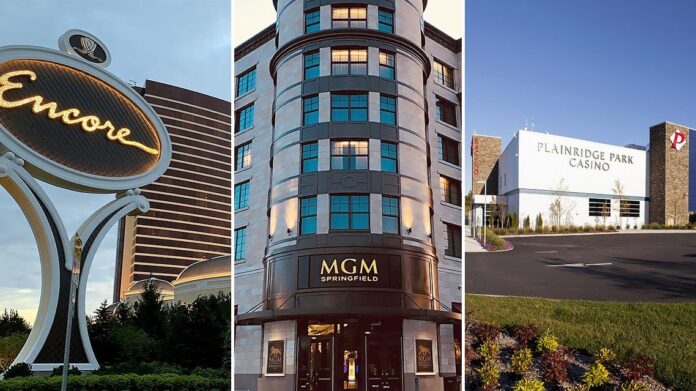
The introduction of casinos to the state in 2015 has not spurred an explosion in problem gambling, according to a new University of Massachusetts study presented on Wednesday to the Massachusetts Gaming Commission.
The study is the first statewide population survey that compares gambling behavior and attitudes before and after the opening of three casinos in the commonwealth. The report’s main finding shows that the prevalence of problem gambling in Massachusetts in 2021 was 1.4% of the population aged 18 and over.
This would indicate that land-based casinos have not increased the rate of problem gamblers in the state. What’s most surprising, the figure is actually lower than the 2% reported in 2013, before MGM Springfield and Encore Boston Harbor opened their doors.
The figure works out to between 54,000 and 114,000 Massachusetts experiencing problem gambling, with this concept understood as those people who exhibit impaired control over their gambling activities and who suffer negative consequences from it.
The key finding from the Social and Economic Impacts of Gambling in Massachusetts (SEIGMA) research team at the University of Massachusetts Amherst did not come as a surprise to longtime gambling behavior expert Rachel Volberg, SEIGMA’s principal investigator.
While gambling literature suggested an increase in problem gambling could be expected, Volberg highlighted a decades-long decline in gambling across all of North America when discussing the report with members of the Massachusetts Gaming Commission on Wednesday.
Volberg noted that a pre-casino survey in 2013-2014 found a high level of overall participation (73.1%) in different types of gambling among Massachusetts residents, including 21.5% who traveled to resorts in Connecticut and other states with a casino industry. In contrast, in 2021, 60.2% of residents surveyed said they had participated in gambling in the past year.
“We hypothesized that because of the clear exposure to casinos in Connecticut, we might not see the increase in problem gambling that often happens in the wake of the introduction of a new form of gambling,” says Volberg, a research professor of epidemiology in the School of Public Health and Health Sciences. “And it was nice to see our hypothesis confirmed.”
Volberg also attributed the steady rate of problem gamblers and at-risk gamblers (8.4% in 2013 and 8.5% in 2021) to Massachusetts’ robust problem gambling prevention programs — GameSense, PlayMyWay and voluntary self-exclusion. “These programs are best practice internationally,” says Volberg, additionally noting legislative measures to prevent problem gambling.
COVID a potential influence on survey outcome
The decline in participation and problem gambling during the 2021 period could also be explained by the lingering effects of COVID-19 restrictions. The surveys used in the report were taken in 2021, while COVID-19 precautions still had venues like MGM Springfield partly closed — and before the explosion of legal sports betting across the Commonwealth.
“Every scientist’s nightmare is something unpredictable that comes in sideways on your experiment,” said Volberg, as reported by Massachusetts Live. “I think COVID hit all of us sideways.”
The expert further noted COVID reduced gambling because it reduced the opportunity to gamble. “And people didn’t go back immediately,” she said in a follow-up interview with The Republican.
Another example of how COVID might have impacted results is that just 9.9% of respondents said they had bet on sports in the year before. While the figure shows a drop from 12% in the 2013 baseline study, the 2021 surveys covered a period marked by COVID restrictions on sporting events, potentially explaining the lower figure.
Other key report findings
The study further shows out-of-state casino patronage declined from 21.5% in 2013 to 10.2% in 2021, with most of the reduction occurring in the patronage of Connecticut casinos. Another finding of note is that 67.5% of respondents told researchers in 2021 that gambling is too widely available, considerably up from 15.6% in 2013.
Volberg also said she was surprised that the general public seems unaware of the help that may be available. Out of those asked if they had seen or heard media campaigns designed to address problem gambling in the year prior, just 20.9% were aware of the efforts, compared with 41% in 2013.
The study also sheds light on the view people have of casinos in the state. Massachusetts adults had mixed opinions about the impact of casinos in the commonwealth, with almost equal numbers of people believing the casinos had been harmful (25.1%) or beneficial (29.1%).
The most positive impacts of casinos in Massachusetts were viewed as employment (36.7%) followed by retaining money that was leaving Massachusetts (17.3%) and increased government revenue (14.3%). Meanwhile, the most negative impacts of casinos in Massachusetts were viewed as increased gambling addiction (45.1%) followed by increased traffic congestion (18.8%) and increased crime (10.7%).
Volberg cautioned that while both surveys were representative samples, they were not the same people contacted twice. The expert and her colleagues surveyed 6,293 people with online and mail questionnaires, working to make the responses reflect the demography of the state.
The study was funded by the Massachusetts Gaming Commission and is meant to serve as a comparison between the survey done in 2013, before the 2015 opening of Plainridge Park Casino, MGM Springfield in 2018, and the 2019 debut of Encore Boston Harbor.
Original article: https://www.yogonet.com/international/noticias/2024/04/04/71588-massachusetts-introduction-of-casinos-has-not-led-to-increase-in-problem-gambling-shows-survey














